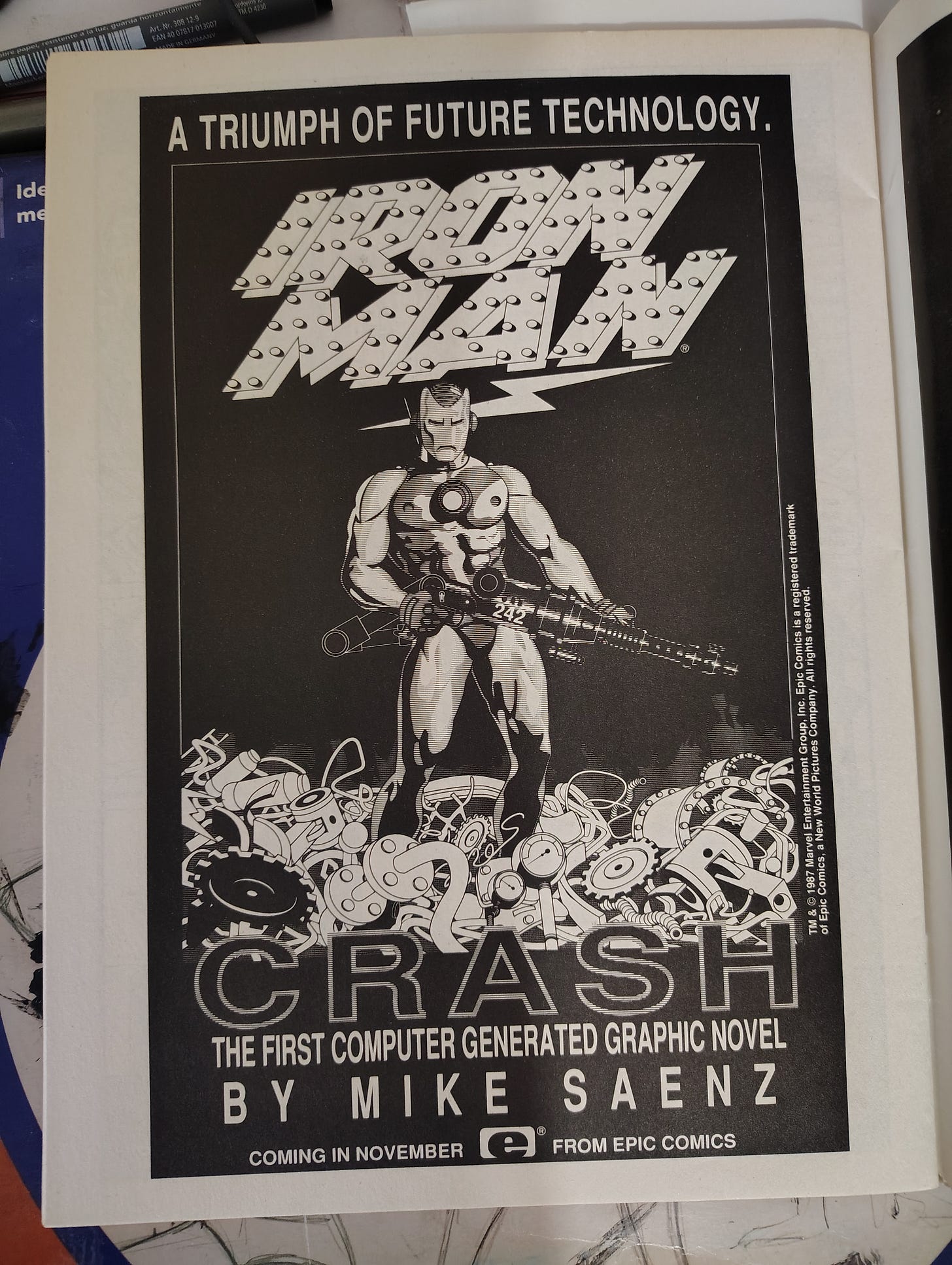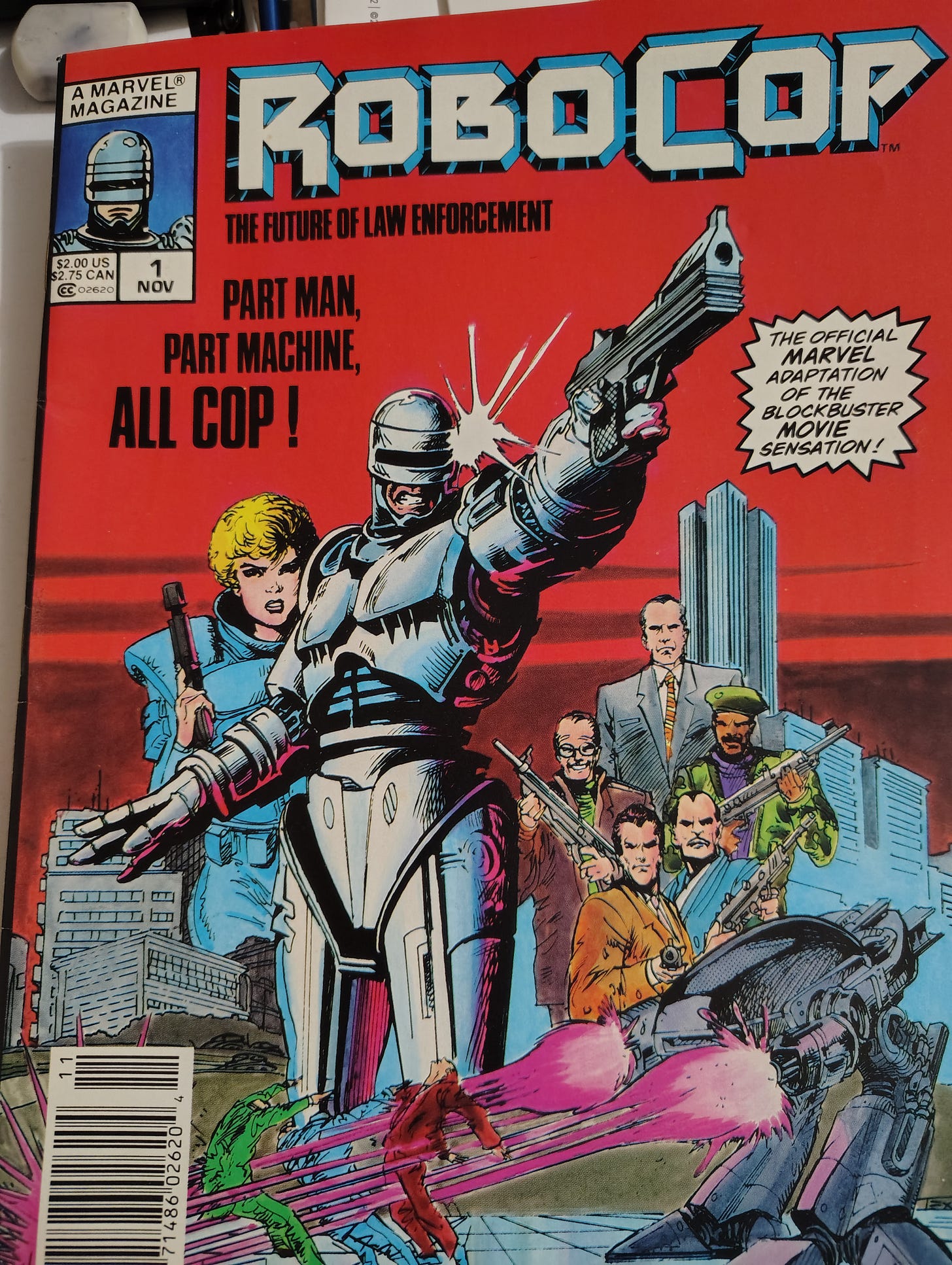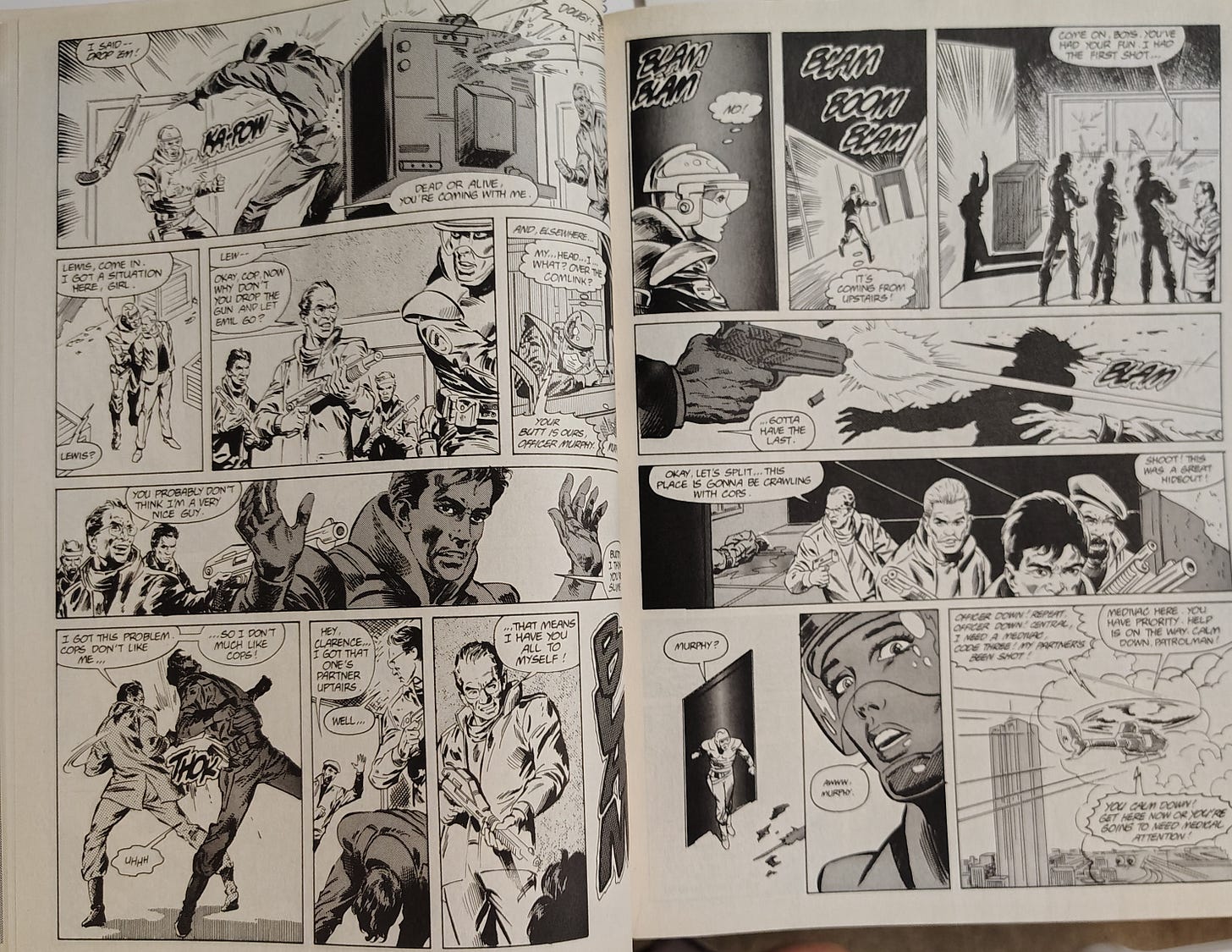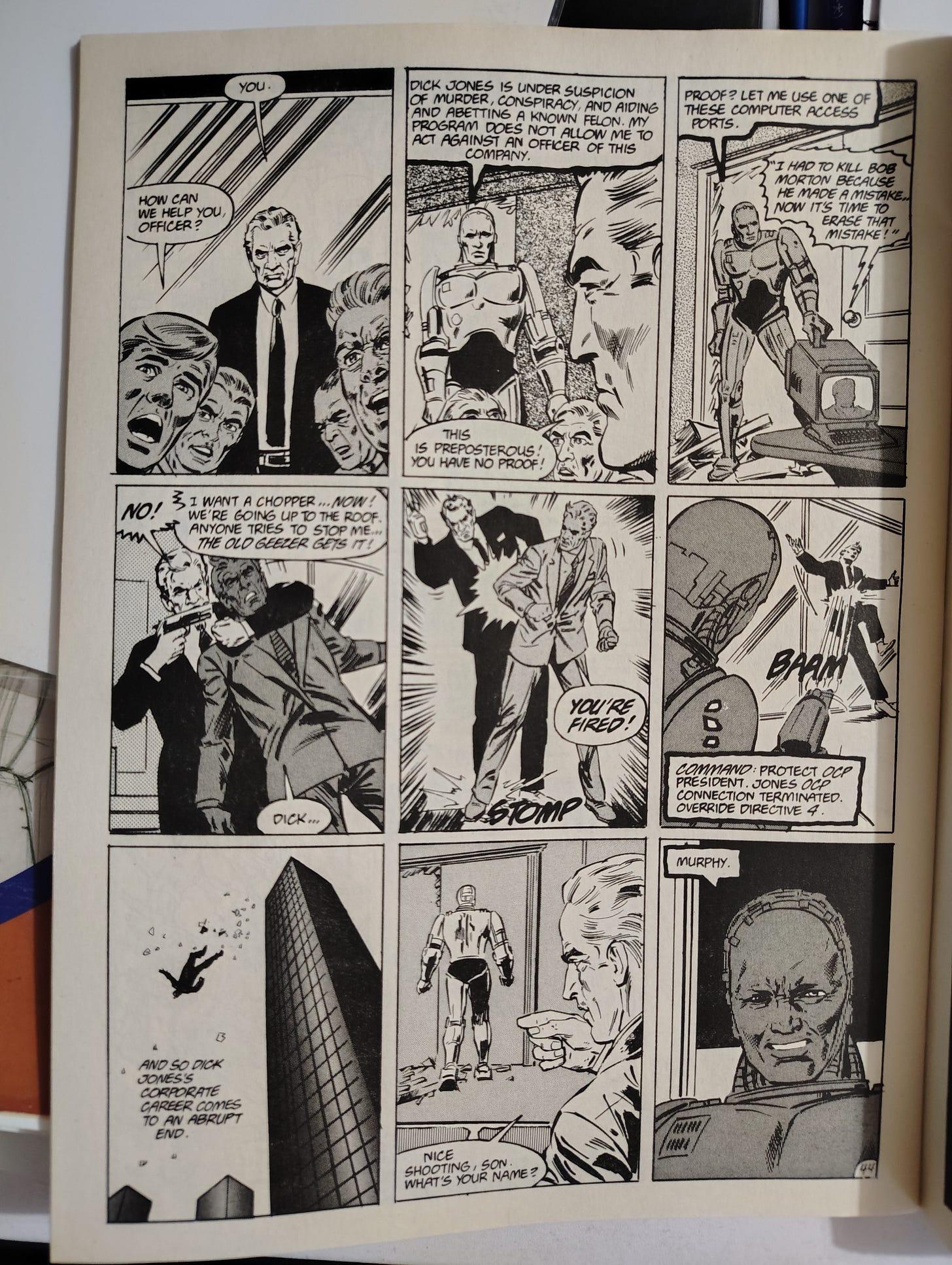Diving into spinoff media feels like reading media from an alternate universe. You see familiar scenes and standout moments, but they're a little different. They're warped in ways that can be better than the original. (In this case we're going from a motion picture to a comic book.)
Spinoff media serves as a time capsule that catches a time in culture that is gone. You find these ads and go "Oh yeah! I remember that."
You can look at the price on the cover and remember when prices were lower, and complain about current prices. Enjoy the time capsule caught on stapled and colored paper.
It's interesting to see where tech was at the time also. Like this full page ad promoting the first computer generated comic. Iron Man was the chosen subject for that experiment.
I might look for this comic book to do a before and after of where tech for art was in 1987 and where it is now. Does this interest you? Comment below.
Reboot Your Creative Engine: Why Old Spinoff Comics Might Be Your Secret Weapon
RoboCop was, and remains, a cultural highlight of its era.
I was into comics as a child, but because I abandoned them as a teenager, to take them up as a young adult again, I missed some interesting events.
One of the them was the publication of the RoboCop comic book adaptation of the movie, published in 1987, the same year the movie was released.
Despite this graphic cover, the comic book adaptation is not as violent as the movie, so it’s already different from the movie.
At one point Edward Neumeier, co-writer of the script, thought it might become a comic book after proposing a comic book to Stan Lee himself. That did happen, but not directly. The unexpected success of the movie opened that door of opportunity.
And the key takeaway from this is how the spinoff media can make you see something you are familiar with in a different way. And how this new perspective can be brought to whatever creative project you're struggling through.
Even though the comic book has reduced the violence of key scenes, it doesn’t detract form the entertainment value the comic offers, so:
Be flexible with the raw material of your story. Don’t insist that it can only be a film, or a novel. RoboCop was a screenplay that almost became a comic, that then became a movie, and also a comic.
Though RoboCop the movie is known for its over the top violence, Marvel went at these iconic scenes a little differently. It doesn’t make the scenes less enjoyable.
Sometimes, spinoff properties can bring an Alternate Universe Vibe to a project. It’s like watching your favorite movie on a CRT TV in a parallel dimension. The dialogue hits different. The action is stylized. Frank Miller recycled a lot of elements of the screenplay for RoboCop II into a comic book branded as Frank Miller’s RoboCop, which doesn’t hold back on the violence and strangeness.
Why This Matters:
Spinoff media makes the familiar strange. And that’s the creative spark that your work may need when you’re stuck. It’s not about whether the comic is “good” or “bad.” If you think it’s bad, it’s a chance for you to make it better.
But it’s about the shift in perspective. You know the original by heart. But now you see the source code rearranged. That’s creative fuel.
Use that warped lens. Project it onto your own stories.
When you’re stuck, borrow the sideways energy these relics are offering you just by existing. Reboot your own ideas.
Let the stuff warp your brain a little.
Your creativity will thank you.
Being a pop culture detective and making comics takes time, energy, and support. I’ve set a goal to help me keep creating, and I’d love for you to be part of it!
https://ko-fi.com/jaycorso/goal







I remember enjoying Robo Cop. What a refreshing way to ignite creativity. Thanks.
I'm not a comic fan. So, this was totally new to me. Fascinating.